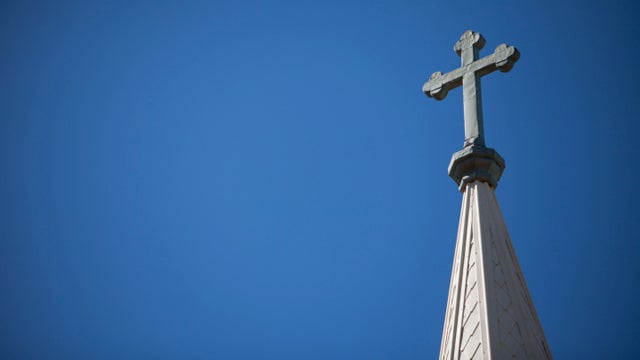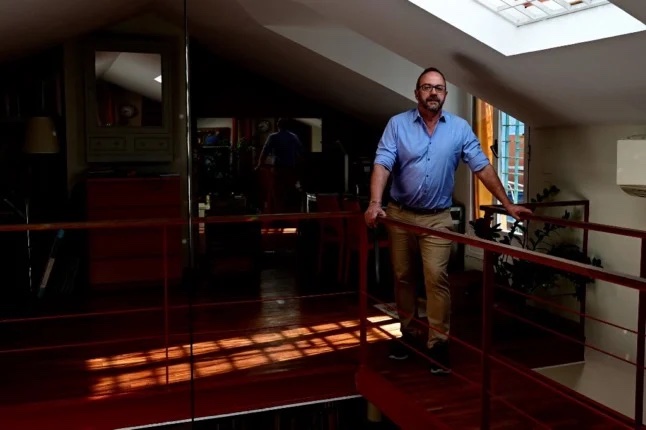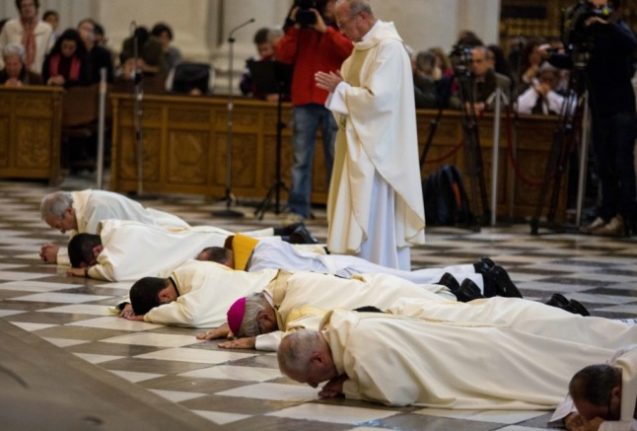The measure was one of several measures announced by French bishops, one month after a landmark report on sexual abuse by clergy members in France.

By
The Roman Catholic Church in France will sell some of its assets to compensate victims of sexual abuse, French bishops announced on Monday, one month after the release of a sweeping report on sexual abuse by the clergy that has fueled growing calls for reform.
“We will ensure that no one is left behind,” Éric de Moulins-Beaufort, the archbishop of Reims and the president of the Bishops’ Conference of France, told reporters after a meeting of bishops over the past week in Lourdes, a popular Catholic pilgrimage site in southwestern France.
The measure, one of several approved near unanimously on Monday by the bishops, was greeted by victims groups as a significant step in the French church’s reckoning of sexual abuse in its ranks, which accelerated after the release of the report last month.
But they cautioned that they would keep a watchful eye on the implementation of the measures announced Monday, which also included the creation of an independent reparations body to process victims’ claims. The bishops also said they planned to set up working groups, presided over by laypeople, that will draw up concrete proposals by 2023 on issues like the training of priests.
Olivier Savignac, a member of De la parole aux actes!, an umbrella association of victim groups established after the report was released, said that a culture of opaqueness and secrecy had been “broken.”
“Now we want to see how things are going to be implemented,” Mr. Savignac said, citing the staffing of the working groups and of the reparations body, which will be led by Marie Derain de Vaucresson, a legal expert who specializes in the rights of children.
For the first time last week, France’s 120 bishops recognized that the church bore an “institutional responsibility” for “systemic” abuse.
It’s the sign of a positive dynamic, which must still be confirmed,” Jérôme Chapuis, the editor in chief of La Croix, a respected Catholic newspaper in France, wrote in an editorial on Sunday. “Because this fragile process is only in its early stages.”
The announcement on compensation was widely awaited by victims of clerical abuse, who had balked at earlier suggestions by France’s Catholic leadership that the victims compensation fund should be financed mainly by parishioner donations.
“It’s what we were hoping for,” said Mr. Savignac, who was sexually abused by a priest at age 13. “Because it’s the institution that is taking responsibility and paying.”
The Church will sell assets, including real estate, and could even take out a loan if needed, Archbishop de Moulins-Beaufort said. Each victim will also be compensated individually — another key demand from victims groups, who had rejected suggestions of a flat fee and said each case needed to be evaluated separately. Some victims say they need to recoup years of medical bills and other expenses linked to the trauma caused by the abuse.
Parishioners can still donate money directly to the compensation fund, but general parishioner donations, which account for a large portion of the Catholic Church’s funding in France, will not be used, the bishops said on Monday.
Archbishop de Moulins-Beaufort did not provide any details about how much the church expected that the compensation fund would grow, but said it would be endowed gradually as victims came forward. Nor did he provide an inventory of what the church expected to sell. Some French dioceses, like the one in Paris, have sizable real estate assets, but others are struggling financially.
“Obviously we must gather sums that are far greater than what we had imagined, given the scope of the abuse,” he said.
The bishops have also asked Pope Francis to send a team of “trusted” advisers to help evaluate the French church’s child-protection measures. The Vatican’s role in the handling of abuse scandals in the Catholic Church has been criticized by victims’ groups, who argue that it is an obstacle to reform on some issues, like holding negligent bishops accountable, requiring that allegations be reported to civil authorities, and, in rare cases, using confession to keep abuse secret.
The bishops voted on Monday to create a special canonical court that will handle abuse cases nationwide, to avoid having priests accused of abuse judged by local church leaders who may be inclined to protect them.
But other issues related to canon law are outside of the French church’s purview and would require a policy shift in Rome. French Catholic leaders are expected to meet with Pope Francis in December.
“We are not at the end of the path,” Archbishop de Moulins-Beaufort said in his closing speech on Monday. “But a path is possible, it has been laid out for us, and we must follow it step by step.”
Complete Article ↪HERE↩!




